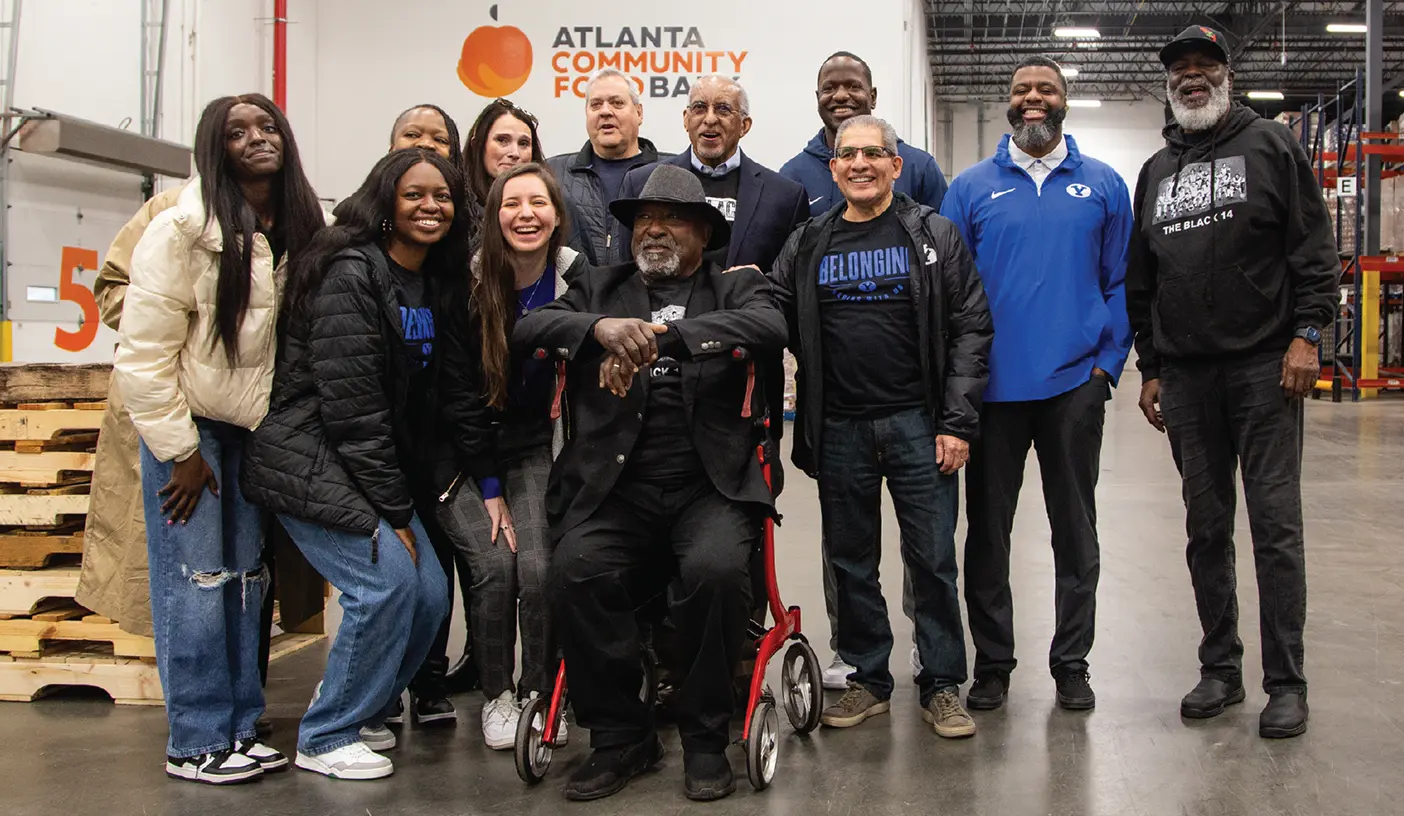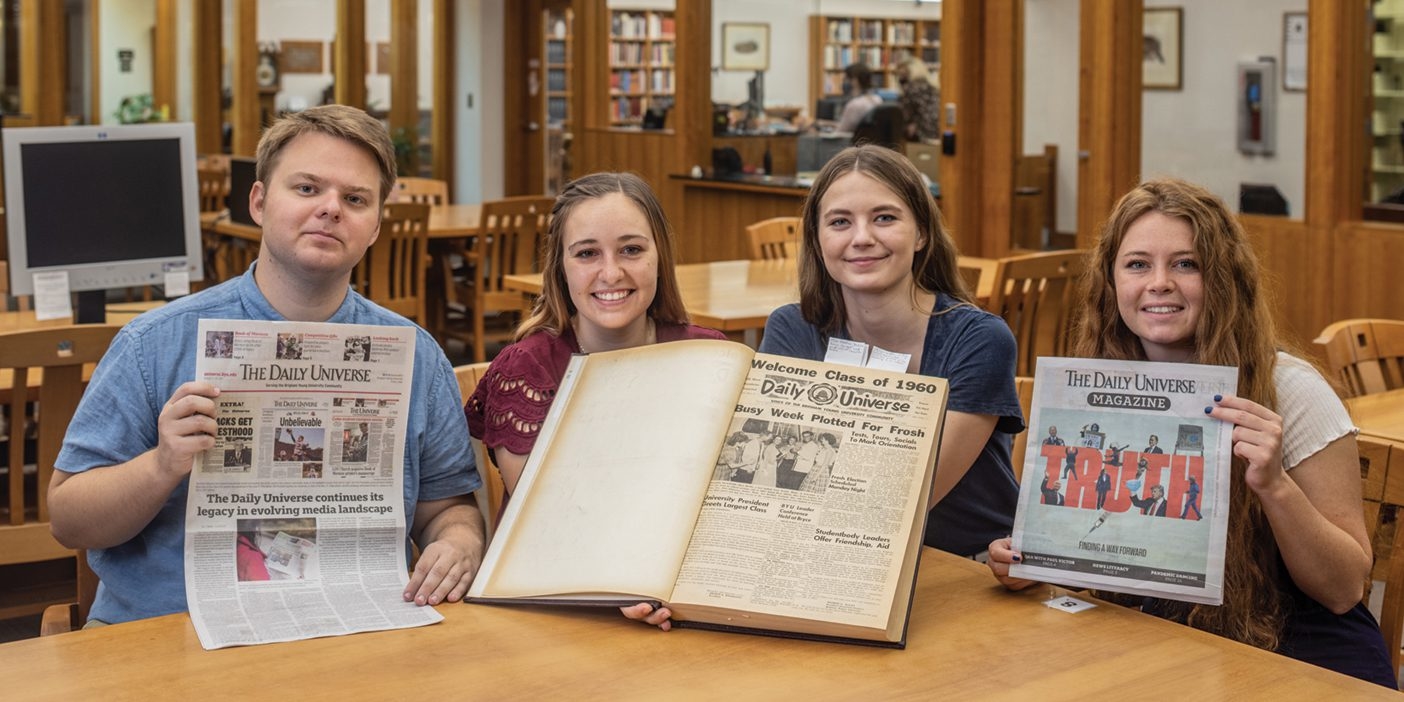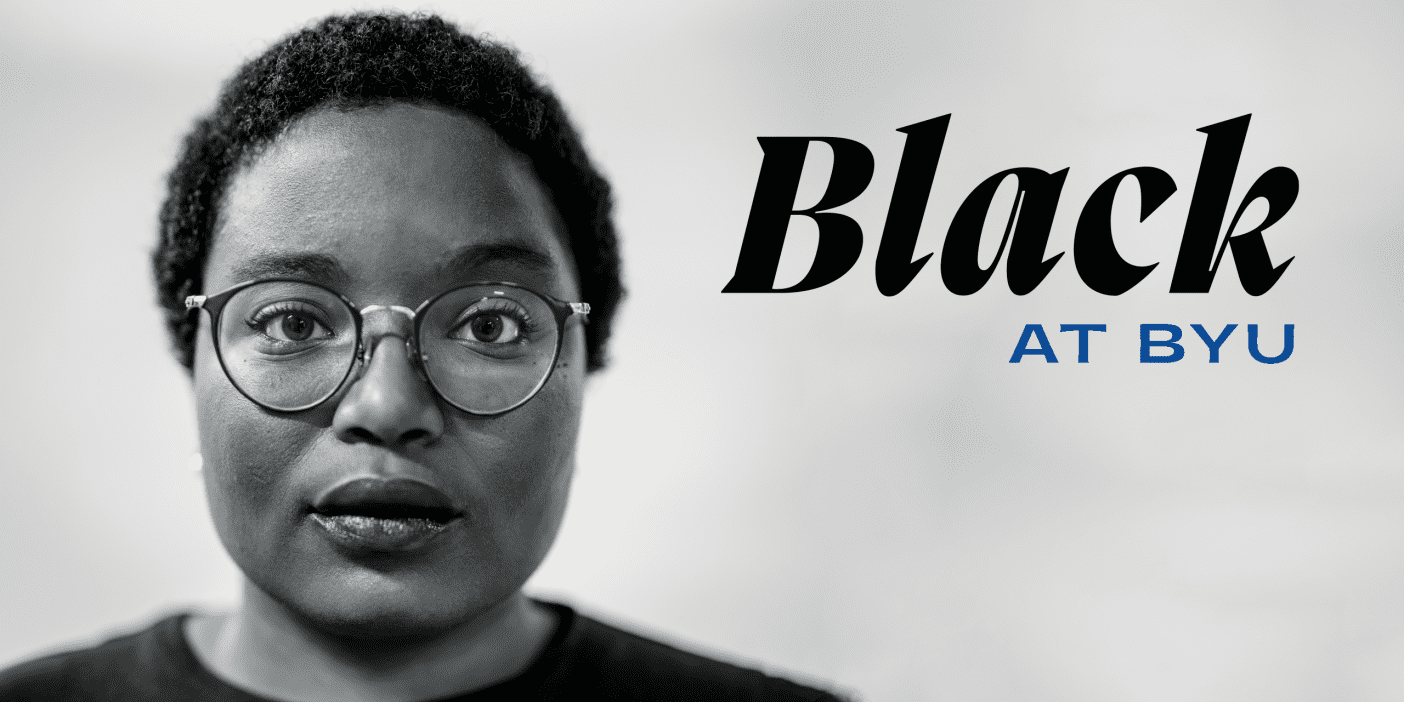A collaboration and a documentary help heal wounds from the past.

In 1969 a group of 14 Black football players at the University of Wyoming approached their coach with a proposition: to protest racial policies of The Church of Jesus Christ of Latter-day Saints, they would wear black armbands in their rivalry game against BYU. The coach responded by kicking them off the team.
Although some players were reinstated, emotional scars lingered unaddressed until CBS covered their story in 2017. The Black 14 leveraged the limelight for good, organizing donations to alleviate food insecurity. Three years later they partnered with the Church of Jesus Christ to donate more than 340,000 pounds of food.
In 2022 a team of BYU journalism students, staff, and faculty captured this story of reconciliation in a documentary titled The Black 14: Healing Hearts and Feeding Souls. The award-winning film was showcased in the College Football Hall of Fame’s Black History Month exhibition this February.
“The film was a special collaboration between BYU folks and us,” says Black 14 member John Griffin. “It’s a relationship that’s based on brotherhood, love, and willingness to get things right.” To get the story right, the BYU journalists visited 10 states in 11 days for interviews and finished the documentary over just one summer.
Their work culminated in a packed 2022 premiere with two of the Black 14 in attendance. The next day the crowd attending the BYU vs. Wyoming football game at LaVell Edwards Stadium recognized the Black 14’s sacrifices and successes with thunderous applause.
“Seeing them come to BYU and be accepted and celebrated—that’s got to mean something,” says Abigail J. Gunderson (BA ’23), a journalism student who worked on the film.
“It’s a story that starts in tragedy and disappointment and unfairness and hurt,” adds Melissa True Gibbs (BA ’01, MA ’21), Daily Universe news lab director and documentary mentor. “And it’s a story that turned into something of healing and hope and coming together.”












